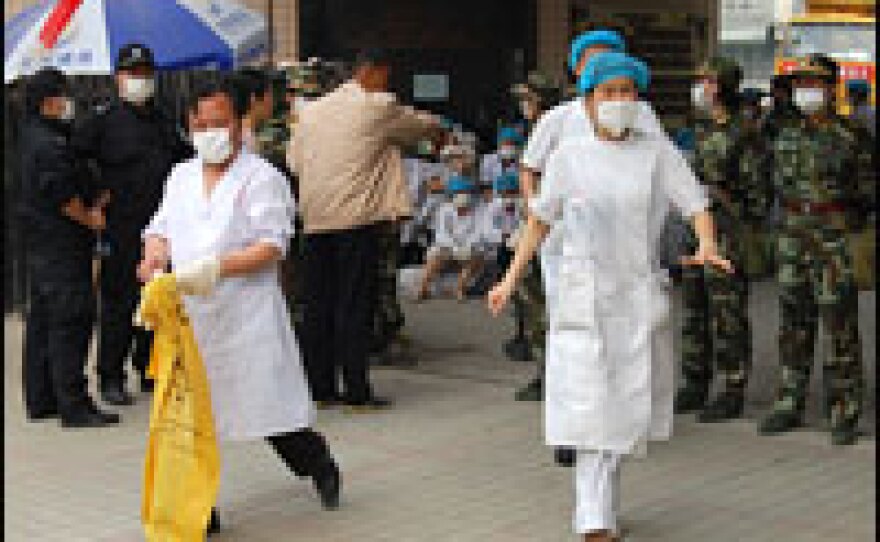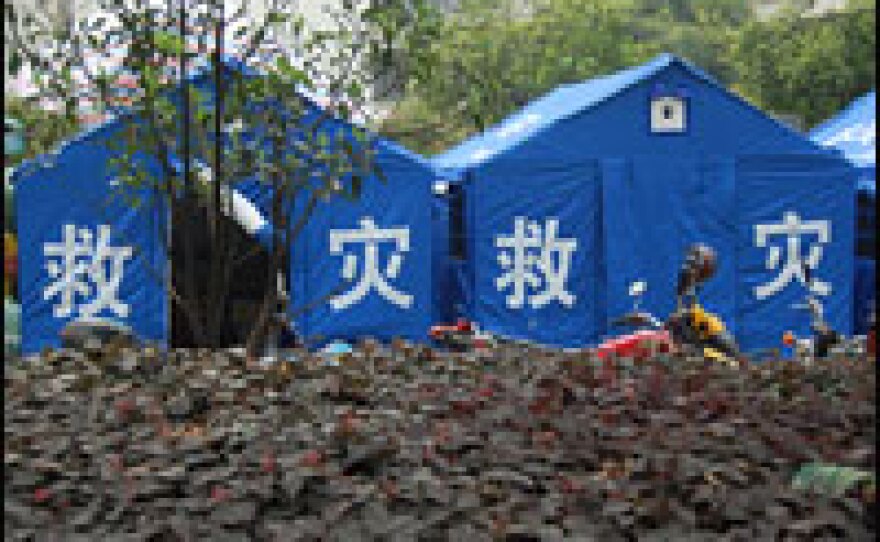

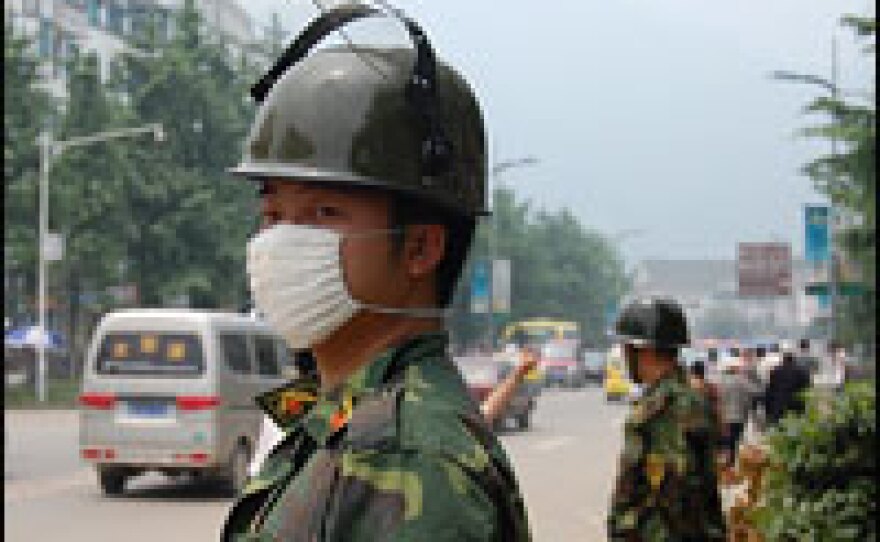
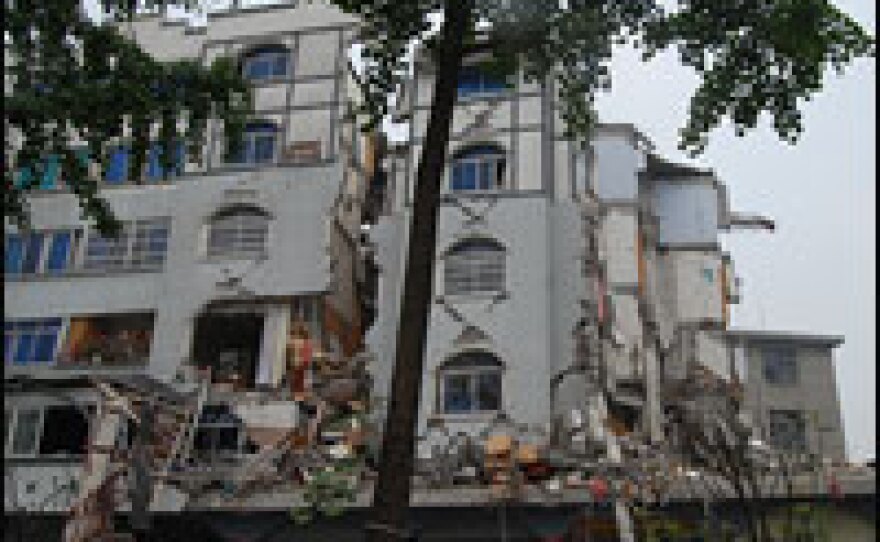
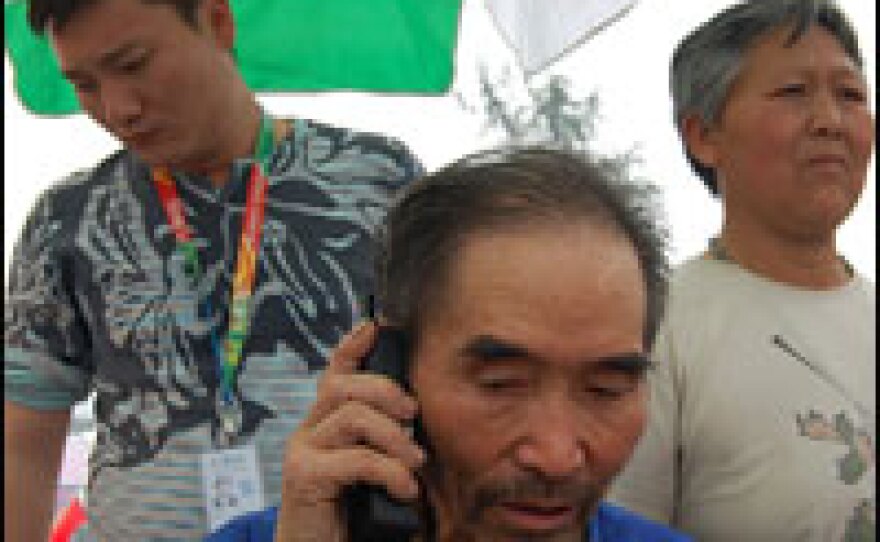
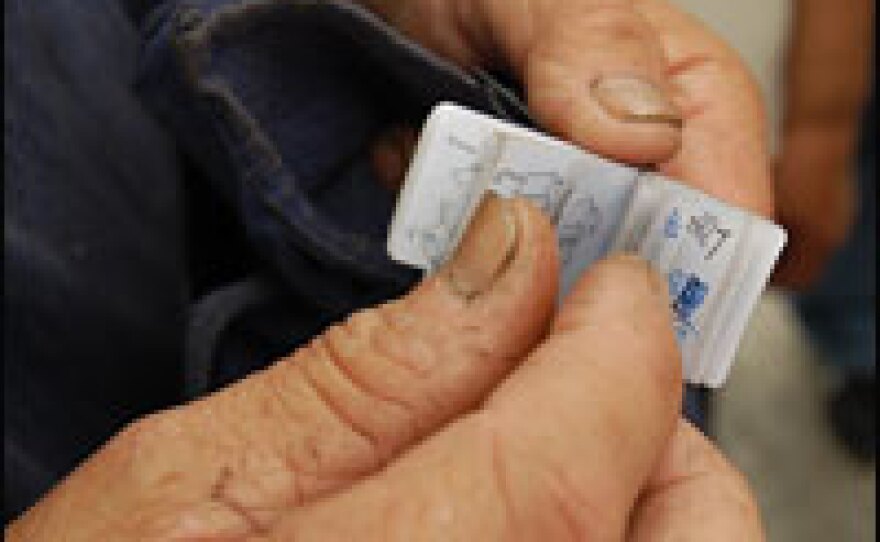
The official numbers from the Chinese earthquake are hard to fathom: more than 21,000 people confirmed dead, some 160,000 injured. Tens of thousands still believed buried. And nearly 5 million left homeless.
Dujiangyan, about 20 miles from the epicenter of the earthquake, has gone from a booming metropolis of more than a half-million residents to a teeming tent city.
Buildings on just about every block have crumbled. No one is sleeping indoors.
On a drive through Dujiangyan, NPR's Melissa Block sees three army trucks. Blue frame tents are set up with the words "disaster relief" on them. The luckier people get those tents. The ones who don't have them — at least not yet — are sleeping just under tarps on the street. The stores are all shuttered; there's nothing open. A man with a face mask rides a bicycle loaded with supplies.
Face masks are standard apparel now; the city is choked with dust. Heavy machinery is out in force: It claws through rubble and hauls it away.
The traditional Chinese Medicine Hospital was obliterated on Monday. A large crowd of people gathers outside the gate, waiting for news about family members buried inside.
"I have been waiting here since the earthquake," says a woman with a blue face mask who waits with her brother-in-law. She says she has been waiting every day. Her face is drawn with fatigue; so is her brother-in-law's.
They're missing 10 family members, who were visiting a relative at the hospital on Monday afternoon: a brother-in-law, two sisters, two sons, a grandson. The list goes on and on.
They ask NPR not to use their names because they're openly angry and worry about reprisals from local officials.
They say this hospital was badly built with cheap materials. The woman says the steel used was weak and the cement was so soft that if you rub it, it turns into powder.
It's a complaint that has been repeated all week.
"Why are all these other buildings here still standing, while that building collapsed?" she asks.
Military police carry out a blue stretcher bearing a body wrapped in yellow plastic — another victim they've recovered from the hospital. There are six corpses already laid out; this is another.
"I've cried so much that all my tears are gone," says the woman, whose husband is among the missing.
But she and her brother-in-law will stay on the sidewalk. He says he's hoping for a miracle.
Through the town, there are relief supplies: pallets of water bottles, cartons of food. On one corner, there's an emergency mobile dental clinic. Telecom companies have set up tents offering free calls so people can let their families know they're OK.
At the telecom tent, 70-year-old Luo Anzhe thumbs through a tiny book looking for people to call. The book is about an inch square: a collection of pieces of paper, with phone numbers written on them in tiny handwriting.
Luo calls a daughter in Beijing and gets through.
"I've been trying to call," he says. "We're still alive!"
After he hangs up, Luo walks away with his wife. He's wearing rope sandals with straw soles and carrying steamed buns home in his apron.
"Home" means what passes for home now: a makeshift tent on the sidewalks of Dujiangyan.
Copyright 2022 NPR. To see more, visit https://www.npr.org. 9(MDAzMjM2NDYzMDEyMzc1Njk5NjAxNzY3OQ001))


